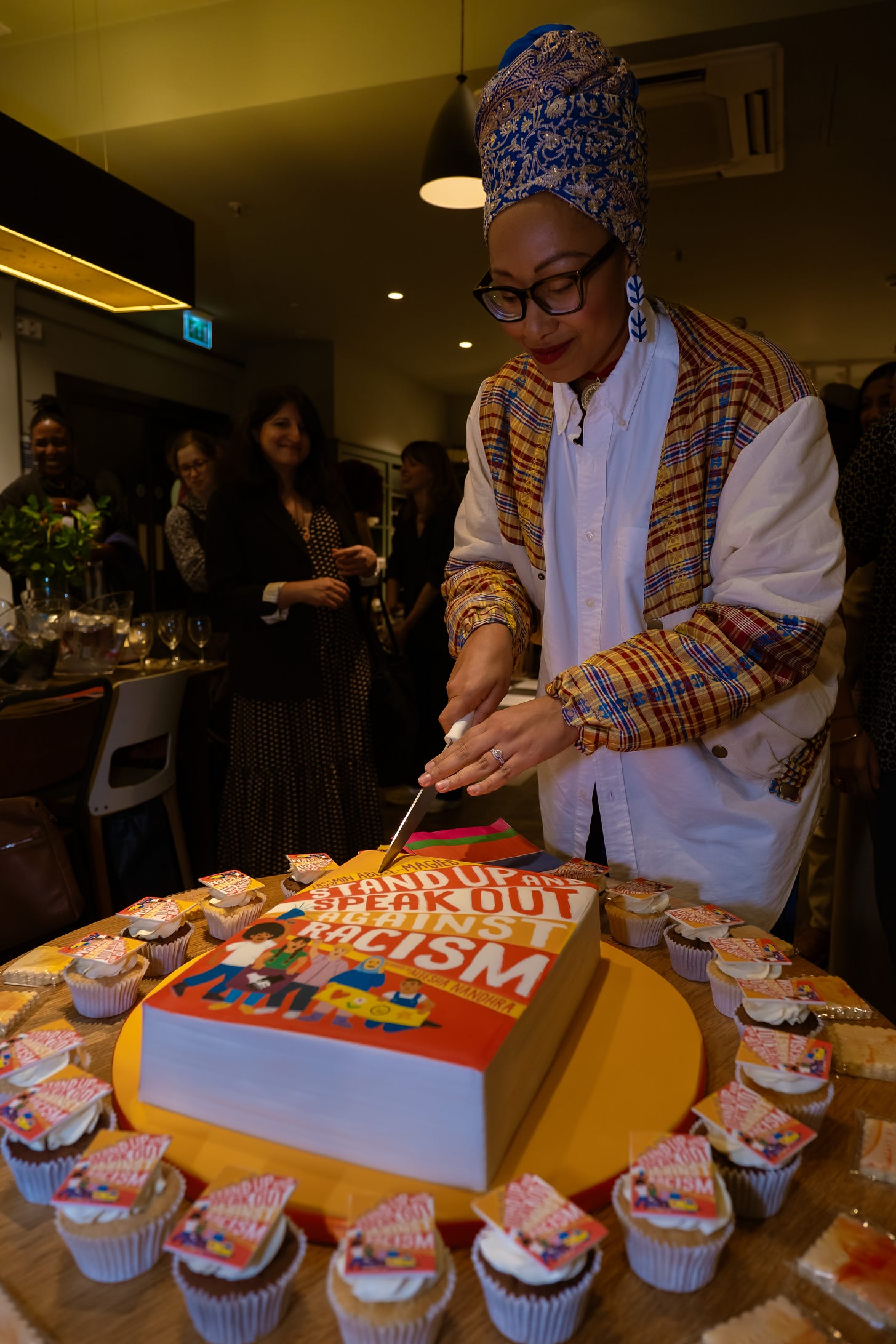On Weddings and War
Three debut book recommendations and a reflection from the weekend.
I spent Sunday as the Master of Ceremonies for a cousin’s wedding. Although I have been the MC for numerous weddings before (occupational hazard of being a professional speaker), in the days and hours before the event I found myself beset with waves of strange trepidation.
These weren’t the typical nerves that accompany a day’s work facilitating a few hundred aunties, uncles and children through a tightly programmed schedule in two different languages. That was the easy part.
No. I was anxious about facing a hall full of Sudanese people, given the year we have had.
This wedding was a celebration originally scheduled to be held in Khartoum in May. As you may know, war broke out in the city on April the 15th. The bride and groom had done an incredible job pivoting - I cannot express the depths of my admiration at their ability to plan a seamless wedding mere months after escaping a literal war zone - but I still, felt worried. How would I, as the MC, bring the appropriate level of bright and celebratory energy into the space given the grief and trauma I know we all felt?
Subhanallah. It turns out, we humans have incredible capacity to make space for joy, even while we grieve. The day overflowed with laughter, dancing, music and food, the gurgling of new babies and the murmured blessings of elders. The wedding felt like a poignant reminder of so many truths about life; that great joy and great sorrow are cousins once removed, love blossoms even amongst the rubble of our homes, and time continues unheeding.
Thank you, cousin, for letting me play even the smallest role in bringing our families together, and for cleaving open a space for Sudanese custom and jubilation, in a time we need it most.
In the spirit of conflict and new beginnings, I am recommending three debuts I have recently read and enjoyed, all written by women of colour.
Songs for the Dead and For the Living by Sara M Saleh
A novel written by a friend, Sara M Saleh, that covers an intergenerational journey from Palestine to Australia, via Lebanon and Egypt. Inspired by her own family’s experience, this evocative book peels back decades of displacement within a single family to reveal the threads of embodied anxieties that form the warp and weft of so many diaspora stories.
Ghost Season by Fatin Abbas
Taking place in a border town between the north and south of Sudan, before the country split into two separate nations, this novel is set primarily in an NGO compound, and tells the story of five characters whose lives, hopes and dreams face off with the broiling conflict in the region. In so many ways, this is a love story.
Wandering Souls by Cecile Pin
Longlisted for the Women’s Prize, and I can see why. Super formally interesting, this is a short novel on a Vietnamese family’s experience escaping the war in the 1970s, planning to travel to the US but ending up in the UK. Told primarily through the voice of children, this is an honest, wrenching read. Unfortunately, Thatcherite Britain’s asylum policies don’t feel so different from today’s.
A few assorted other links worth reading this week:
On why Barbie is not just light fun, but downright dangerous:
The Barbie movie is so insidious because much of it was incredibly enjoyable. It is a true masterpiece of capitalism. It is visually gorgeous…
Yet, ultimately, the Barbie movie is a trojan vehicle. A gorgeous cake decked with all the trimmings of capitalist achievement and pants-suit-nation–style female liberation, lined with candied pearls, topped with a bubblegum pink bow of social importance. But inside, the cake is hollow. And if you were expecting a newly empowered, albeit scantily dressed woman to jump out of it tossing her hands in the air in celebration of some uniquely articulated sisterhood, I think what you’ll actually find once you cut in is a pile of toxic, melted plastic, poisoning everything, a sexist goo unable to stand up to the heat of the most basic scrutiny.
On the ‘myth’ of Open Source AI:
“What our analysis points to is that openness not only doesn’t serve to ‘democratize’ AI,” Meredith Whittaker, president of Signal and one of the researchers behind the paper, tells me. “Indeed, we show that companies and institutions can and have leveraged ‘open’ technologies to entrench and expand centralized power.”
And finally, a thread worth reading from one of my favourite tweeters:
Last note:
The launch for Stand Up and Speak Out Against Racism was held at Waterstones Picaddilly last week, and my LinkedIn post about it went slightly viral. I will share more photos from the event soon, but thank you all who were able to attend. If you would like me to come speak to your school or workplace in the UK or US, do let me know!







